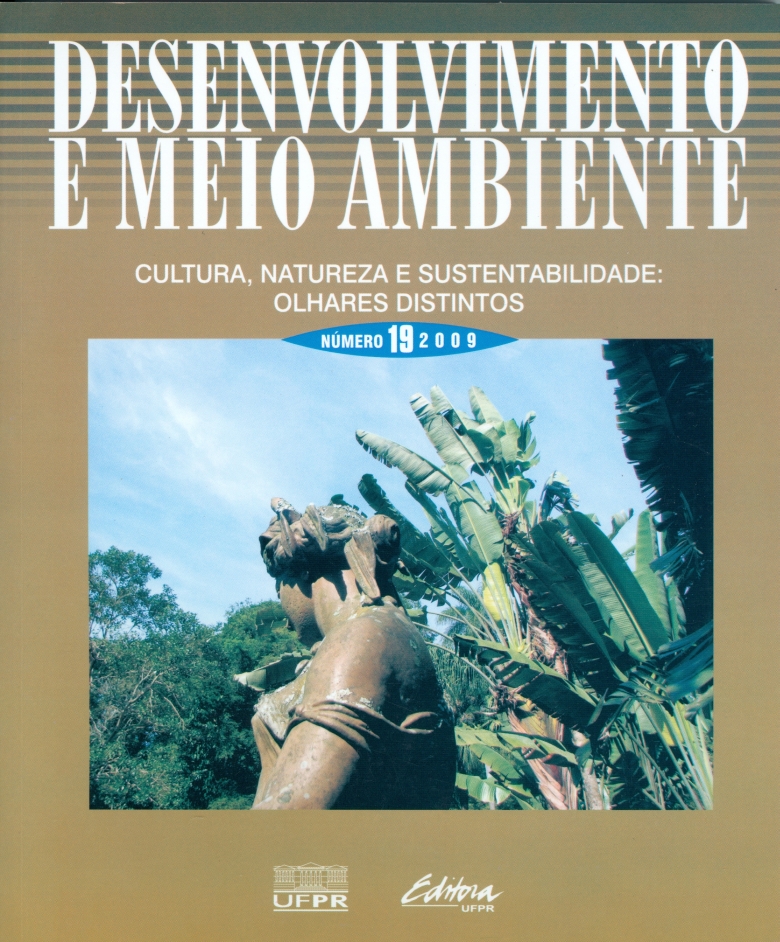Transferência e validação de tecnologias agropecuárias a partir de instituições de pesquisa
DOI:
https://doi.org/10.5380/dma.v19i0.12664Palavras-chave:
rural development, innovation in agriculture, agricultural research, desenvolvimento rural, agricultura, pesquisa agropecuáriaResumo
Este artigo aborda a renovação de alguns dos pressupostos que orientam o processo de inovação na agricultura brasileira, inclusive a definição do escopo das expressões “transferência de tecnologia” e “validação tecnológica”. A primeira delas é frequentemente sobreposta pelo conceito de difusão de tecnologia, enquanto a segunda é confundida com a noção de reprodutibilidade experimental. Esta indefinição compromete a geração e o acesso aos resultados das instituições de pesquisa agropecuária, a adoção de tecnologias pelos agricultores e a co-responsabilidade pelo desenvolvimento tecnológico entre pesquisa e usuários, uma vez que estes conceitos permeiam as políticas, os programas e planos para o desenvolvimento e a inovação no espaço rural. O presente trabalho tem por objetivo contribuir para a construção de referenciais teóricos que facilitem a ordenação de conhecimentos e de práticas que pos-sibilitem a ampla inclusão de diferentes atores no processo de geração e acesso às tecnologias agrícolas, em alternativa aos modelos com predominância do viés tecnocrático e econômico clássico. As reflexões aqui apresentadas reforçam a necessidade de revisão dos modelos de desenvolvimento tecnológico e rural, sob a perspectiva da autonomia tecnológica de quem produz e do desenvolvimento sustentável.
Downloads
Publicado
Como Citar
Edição
Seção
Licença
Os Direitos Autorais sobre trabalhos publicados nesta revista são do autor, com direitos de primeira publicação para a revista. O conteúdo dos trabalhos publicados é de inteira responsabilidade dos autores. A DMA é um periódico de acesso aberto (open access), e adota a licença Creative Commons Atribuição 4.0 Não Adaptada (CC-BY), desde janeiro de 2023. Portanto, ao serem publicados por esta Revista, os artigos são de livre uso para compartilhar (copiar e redistribuir o material em qualquer suporte ou formato para qualquer fim, mesmo que comercial) e adaptar (remixar, transformar, e criar a partir do material para qualquer fim, mesmo que comercial). É preciso dar o crédito apropriado, prover um link para a licença e indicar se mudanças foram feitas.
Os conteúdos publicados pela DMA do v. 53 de 2020 ao v. 60 de 2022 são protegidos pela licença Creative Commons Atribuição – Não Comercial – Sem Derivações 4.0 Internacional.
A DMA é uma revista de acesso aberto desde a sua criação, entretanto, do v.1 de 2000 ao v. 52 de 2019, o periódico não adotava uma licença Creative Commons e, portanto, o tipo de licença não é indicado na página inicial dos artigos.




